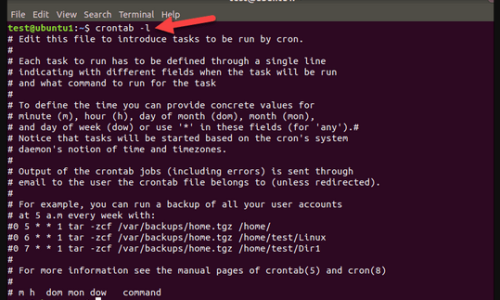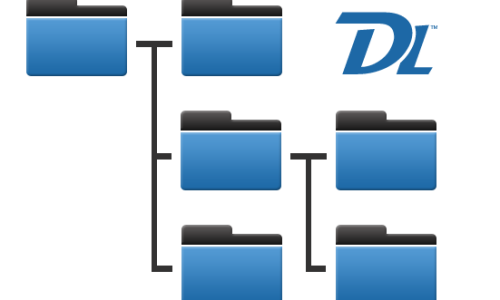Crontab
What is Crontab
Cron is a time-based job scheduler that allows you to run commands or scripts at any given date and time in Linux-based environments using the crontab tool.
A scheduled task, also known as a cron job, can be used in many different scenarios including backing up a database, clearing out temporary file storage locations, and much more.
Cron jobs are great for handling behind-the-scenes tasks that run regularly and are not generally user-executed.


How to install cron
Install the package
sudo apt install cron
Verify service is up an running
sudo systemctl status cron
Termomonlogy and Concept
-
Cron:- Definition: Cron is a time-based job scheduler in Unix-like operating systems. It allows users to schedule jobs (commands or scripts) to run periodically at specified intervals.
- Purpose: It is designed to automate repetitive tasks, such as system maintenance, backups, and other periodic activities.
Crontab:- Definition: Crontab is a command used to interact with the cron daemon. It stands for “cron table” and is essentially a configuration file that contains the schedule of cron jobs for a user.
- Purpose: Crontab is used to create, edit, list, and remove cron jobs. It provides a simple and structured way to manage scheduled tasks.
Cron Job:- Definition: A cron job refers to a specific task or command scheduled to run at a particular time or interval using the cron daemon.
- Purpose: Cron jobs are the actual tasks that users want to automate. These tasks can be anything from running scripts to executing commands at specified times.
Cron Daemon:- Definition:The cron daemon (sometimes referred to as cron service) is a background process that runs on Unix-like operating systems. Its primary function is to execute scheduled tasks at predefined intervals.
- Purpose:The cron daemon constantly checks the system’s cron tables for scheduled tasks. When a scheduled time matches the current time, the daemon executes the associated commands or scripts. It is responsible for the actual execution of cron jobs.
Folder/files structure and configuration

Cron Configuration Files:- Main cron configuration file is located at
/etc/crontab. - Additionally, there might be a directory called
/etc/cron.d/
- Main cron configuration file is located at
User-specific Crontab Files:- Each user with permission to use cron has their own crontab file.
- User crontab files are usually stored in a spool directory. The location can vary, but commonly it is in
/var/spool/cron/or/var/spool/cron/crontabs/.
System-specific Cron Directories:/etc/cron.hourly/,/etc/cron.daily/,/etc/cron.weekly/, and/etc/cron.monthly/where system administrators can place scripts or tasks to be executed at specific intervals.
Cron Daemon Configuration:- The configuration for the cron daemon itself is often found in system-specific files, such as
/etc/cron.d/or/etc/cron/cron.d/.
- The configuration for the cron daemon itself is often found in system-specific files, such as
Cron logs:- On Ubuntu, cron logs are often located in
/var/log/syslog/ - On Debian, cron logs may be in
/var/log/syslog/or/var/log/cron/
- On Ubuntu, cron logs are often located in
Commands
| DESCRIPTION | COMMAND |
|---|---|
| Edit own crontabs | crontab -e |
| Lists all cron jobs | crontab -l |
| Multiple cronjobs in textfile | crontab /path/to/the/file/containing/cronjobs.txt |
| Deletes all cron jobs | crontab -r |
|
Manage other crontabs (may require elevated privileges) |
crontab -u otherusername -e |
Crontab configuration file
Omportant to always use the whole path to the command
# The template of this file may differ
# Edit this file to introduce tasks to be run by cron.
#
# For example, you can run a backup of all your user accounts
# at 5 a.m every week with:
# 0 5 * * 1 tar -zcf /var/backups/home.tgz /home/
# A dummy script that runs every minute
* * * * * /root/greeting_hello.sh
# At minute 5
5 * * * * echo “hello world”
# Every day at 15.00 send output to a file
0 15 * * * echo “Linux is Cool!” >> ~/crontab_log.txt
# Every hour
@hourly echo “hello world”
# The same as previous line
0 * * * * echo “hello world”
# After the computer/server reboots
@reboot echo “hello world”
Crontab entry
# ┌───────────── min (0 - 59)
# │ ┌────────────── hour (0 - 23)
# │ │ ┌─────────────── day of month (1 - 31)
# │ │ │ ┌──────────────── month (1 - 12)
# │ │ │ │ ┌───────────────── day of week (0 - 6) (0 to 6 are Sunday to Saturday, or use names; 7 is Sunday, the same as 0)
# │ │ │ │ │
# │ │ │ │ │
# * * * * * command to executehttps://crontab.guru/
https://crontab-generator.org/

